
Israel, Palestine, Lebanon, Syria, Iran, Yemen – conflicts and power struggles in the Middle East are daily news.
Do you want to deepen your expertise on the region and its conflicts and meet the important societal demand for knowledge and insights in the Middle East? Then join our Master's programme Middle Eastern Studies in Groningen.
The Middle East remains one of the most dynamic and consequential regions in the world. From the war in Gaza and ongoing conflicts in Syria and Yemen, to political upheavals in Lebanon, Iran, and Tunisia, and shifting alliances involving Turkey, Saudi Arabia, and Israel — the region is at the heart of today's global challenges. Studying the Middle East means engaging with critical questions about power, identity, religion, resources, and resilience. Our MA program offers students the tools to understand these complexities through history, politics, and culture, preparing them for impactful careers in policy, journalism, diplomacy, cultural organisations, academia and beyond.
The one-year Master's programme in Groningen focuses on contemporary developments in the Middle East, with particular emphasis on the theme of conflicts and coexistence. The programme is interdisciplinary and research-driven, using insights from fields such as International Relations, Religious Studies and Anthropology to help you to understand this highly dynamic and fascinating region. The MA Middle Eastern studies alumni are successful in many professional fields.
If you have a Bachelor's degree in Middle Eastern Studies, the Master's programme enables you to specialize in the theme of conflicts and coexistence and to increase your familiarity with important theoretical and methodological approaches to the region. If you have a Bachelor's degree in another (related) discipline, the Master's programme facilitates you to familiarise yourself with the Middle East and apply your expertise to this region, which is of fundamental in today's world.
The programme offers core modules on contemporary developments in the Middle East, conflicts in the region, the role of international organizations, how to understand minorities, sectarianism and the multifaceted links between religion and politics. You will explore cases such as Syria, Israel-Palestine, Iraq and Iran. The programme also offers ample space to pursue your own interests and develop your own expertise, for example through papers for different audiences, tutorials and internships, for example, at the Ministry of Foreign Affairs, embassies or think tanks, media agencies and societal organisations working on issues such as migration, refugees, terrorism and security.
Read more about the department of Middle Eastern Studies.
The one-year Master's programme offers four core modules in the first semester; all focusing on different aspects of the contemporary Middle East and conflicts in the region. The second semester enables you to further develop your skills and expertise through an internship or a tutorial and a Master's thesis.
| Semesters | ||||
|---|---|---|---|---|
| CoursesCourse Catalog > | 1a | 1b | 2a | 2b |
| International Organizations, Imperialism, and the Middle East (5 EC) This course explores the role and impact of international organizations (IOs) on regional governance in the Middle East. Students critically examine political, humanitarian, cultural, and judicial IOs, analyzing their historical development, objectives, and influence within contexts of imperialism, decolonization, nationalism, and geopolitical rivalry. | ||||
| Power(s), Conflict(s) and Change(s) in the Contemporary Middle East (5 EC) This course examines the dynamics of power, conflict, and change shaping contemporary Middle Eastern politics, religion, and society. Through critical analysis of current developments, students explore how regional transformations influence broader global contexts. | ||||
| Conflicts in the Middle East (10 EC) This course explores contemporary conflicts in the Middle East, analyzing cases such as the wars in Syria and Gaza, and the impact of transnational jihadist movements like al-Qaeda and the Islamic State. Students will engage with theoretical frameworks concerning identity, religion, ethnicity, and violence. | ||||
| Memory, Heritage and Politics in the MENA (5 EC) This course examines how heritage in the MENA region is shaped, contested, and transformed by state actors, local communities, and international organizations. Students explore the politics of memory and heritage through case studies on colonialism, decolonization, revolution, and conflict, addressing themes such as contested memories, political uses of antiquities, colonial architecture, and museum practices. | ||||
| Understanding Sectarianism and Minorities in the Middle East (5 EC) This course examines how minorities and diaspora groups in the Middle East (19th–21st centuries) have expressed agency, shaped identities, and navigated power struggles within imperial, colonial, and post-colonial contexts. Students analyze interactions between minorities, states, majority populations, and international actors, exploring issues of loyalty, authority, protection, and resistance. | ||||
| Master Thesis (20 EC) The Master's thesis offers students the opportunity to independently design and conduct original research on a topic related to the modern Middle East. Guided by expert supervision, students apply theoretical insights and analytical skills acquired throughout the programme. | ||||
| Tutorial / internship / study abroad (10 EC, optional) Internships at home and abroad, such as at Dutch embassies in the Middle East, ministries, media organizations and refugee shelters. | ||||
| Programme options |
|---|
| Tutorial (10 EC) (specialization) Research oriented |
| Master's placement (specialization) A placement during this Master is recommended. It is your responsibility to find a placement yourself, but the Office for Student Affairs can offer help with this where necessary. The course manual suggests many options of work placements (based on the Lecturers' network and alumni's experiences). |
| Specific requirements | More information |
|---|---|
| previous education |
Students with a Bachelor degree in Middle Eastern Studies, History or International Relations and International Organizations from the University of Groningen will be immediately admitted to the Master's degree programme. The same is true for students with a Bachelor's degree in the Humanities/ Arts or Law Faculty from any Dutch University who successfully completed the 30 ECTS Faculty Minor in Middle Eastern Studies at the University of Groningen. Students with Bachelor's degrees other than the three mentioned above and who have not completed the Faculty Minor in Middle Eastern Studies, can be admitted after explicit permission by the Admission Board of the programme. The Admission Board will assess whether the programme and level of the obtained Bachelor's degree provide sufficient background for successfully participation in the Master's programme. |
| language test |
Requirements English: A VWO diploma or a subject certificate for VWO English (mark 6 or higher), minimum requirement of TOEFL iBT 90 (with a minimum of 21 on all items), or IELTS 6.5 (with a minimum of 6 on all items) or Cambridge C1 Advanced or C2 Proficiency. |
| other admission requirements |
Students with an international diploma should fill out the checklist. This checklist needs to be uploaded via the Progress Portal when applying for this programme. |
| Study programme | Organization | Transition |
|---|---|---|
| All Research universities |
Via a pre-master More information:Please note that only students with a BA in Humanities/ Arts or Law Faculty are directly admissible to this programme with a pre-masters/ faculty minor of 30 ECTS in Middle Eastern Studies from the UG |
|
| International Relations and International Organization | All Research universities | No additional requirements |
| History, History (part-time) | All Research universities | No additional requirements |
| Middle Eastern Studies | All Research universities | No additional requirements |
| Study programme | Organization | Transition |
|---|---|---|
| English Language and Culture | University of Groningen |
Additional requirements More information:Successful completion of the Middle Eastern Studies faculty minor of 30 ECTS at the UG |
| American Studies | University of Groningen |
Additional requirements More information:Successful completion of the Middle Eastern Studies faculty minor of 30 ECTS at the UG |
| Arts, Culture and Media | University of Groningen |
Additional requirements More information:Successful completion of the Middle Eastern Studies faculty minor of 30 ECTS at the UG |
| Media Studies | University of Groningen |
Additional requirements More information:Successful completion of the Middle Eastern Studies faculty minor of 30 ECTS at the UG |
| Classical Studies | University of Groningen |
Additional requirements More information:Successful completion of the Middle Eastern Studies faculty minor of 30 ECTS at the UG |
| Frisian Language and Culture | University of Groningen |
Additional requirements More information:Successful completion of the Middle Eastern Studies faculty minor of 30 ECTS at the UG |
| European Languages and Cultures | University of Groningen |
Additional requirements More information:Successful completion of the Middle Eastern Studies faculty minor of 30 ECTS at the UG |
| Archaeology | University of Groningen |
Additional requirements More information:Successful completion of the Middle Eastern Studies faculty minor of 30 ECTS at the UG |
| Linguistics | University of Groningen |
Additional requirements More information:Successful completion of the Middle Eastern Studies faculty minor of 30 ECTS at the UG |
| Art History | University of Groningen |
Additional requirements More information:Successful completion of the Middle Eastern Studies faculty minor of 30 ECTS at the UG |
| Communication and Information Studies | University of Groningen |
Additional requirements More information:Successful completion of the Middle Eastern Studies faculty minor of 30 ECTS at the UG |
| Information Science | University of Groningen |
Additional requirements More information:Successful completion of the Middle Eastern Studies faculty minor of 30 ECTS at the UG |
| Dutch Studies | University of Groningen |
Additional requirements More information:Successful completion of the Middle Eastern Studies faculty minor of 30 ECTS at the UG |
| Type of student | Deadline | Start course |
|---|---|---|
| Dutch students | 15 August 2026 | 01 September 2026 |
| EU/EEA students | 01 May 2026 | 01 September 2026 |
| non-EU/EEA students | 01 May 2026 | 01 September 2026 |
| Specific requirements | More information |
|---|---|
| previous education |
Students with an international diploma can be admitted after permission by the Admission Board of the programme. The Admission Board will assess whether the programme and level of the obtained Bachelor's degree provide sufficient background for succesfully participation in the Master's programme. |
| language test |
Additional requirements English: A VWO diploma or a subject certificate for VWO English (mark 6 or higher), minimum requirement of TOEFL iBT 90 (with a minimum of 21 on all items), or IELTS 6.5 (with a minimum of 6 on all items) or Cambridge C1 Advanced or C2 Proficiency. |
| other admission requirements |
Students with an international diploma should fill out the checklist. |
| Type of student | Deadline | Start course |
|---|---|---|
| Dutch students | 15 August 2026 | 01 September 2026 |
| EU/EEA students | 01 May 2026 | 01 September 2026 |
| non-EU/EEA students | 01 May 2026 | 01 September 2026 |
There is a huge demand for expertise on the Middle East, for example in relation to foreign policy, refugees and terrorism and security. Our alumni work both in the Middle East and Europe. Relatively many students find a job in politics and diplomacy, for example at the Ministry of Foreign Affairs or an embassy or consulate. Quite a number of alumni have acquired a job in local authorities or NGO's in the development and refugee sector.
Others work in media, the security and counter-terrorism field
or the cultural sector. The huge consequences of conflicts in the
Middle East, both in the region itself as well as in the West
provide ample opportunities to acquire Middle-East-related jobs and
positions.
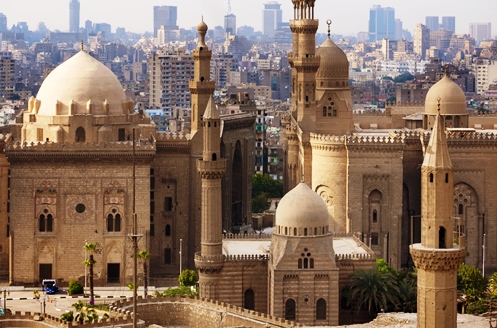
Teaching in the Master's programme is research-driven. The staff members are highly qualified and have diverse disciplinary backgrounds. Their expertise is directly related to the profile of the Master's programme, focusing on, for example, jihadism in Syria and political Islam in Egypt, Christian and Jewish communities in the Middle East, cultural heritage and political struggles.

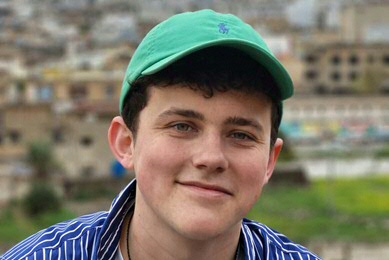
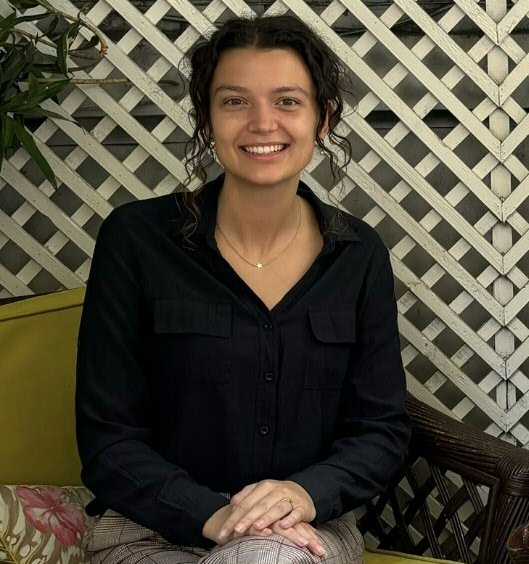
After completing my Bachelor's in International Relations and International Organisation, I was looking for a programme that would allow me to specialize further within the field of International Relations. Ultimately, I chose not to pursue an International Relations Master's programme because the Middle Eastern Studies Master's offered such interesting courses that were hands-on and focused on real case studies.
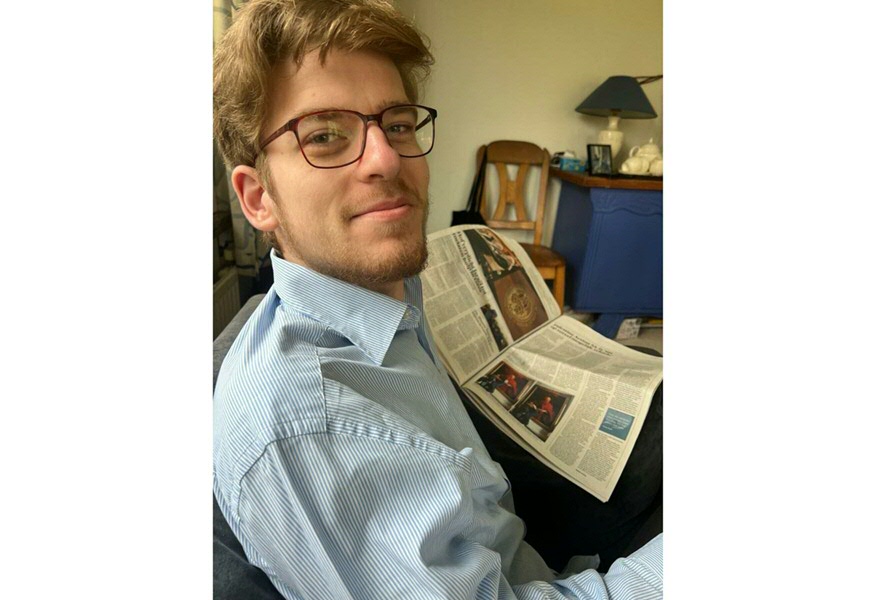
At first I was not planning to do this Master's, because after the Bachelor's Middle Eastern Studies I was looking to focus on something else. However, I could not find a programme that encompassed what I was looking for and therefore chose to start the MA Middle Eastern Studies. With this mindset I started the Master's and at first was not impressed by the courses as conflicts had already been a major topic in the Bachelor's.
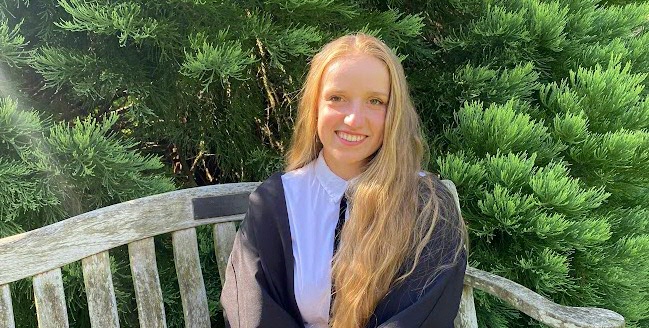
After completing my BA in Arabic and Islamic Studies at the University of Oxford, I was searching for a Master's programme that would allow me to deepen my understanding of the region, particularly with a focus on the modern Middle East. Being originally from Poland, I explored several European universities, but the University of Groningen's MA in Middle Eastern Studies stood out to me for its emphasis on the modern Middle East and interesting curriculum.
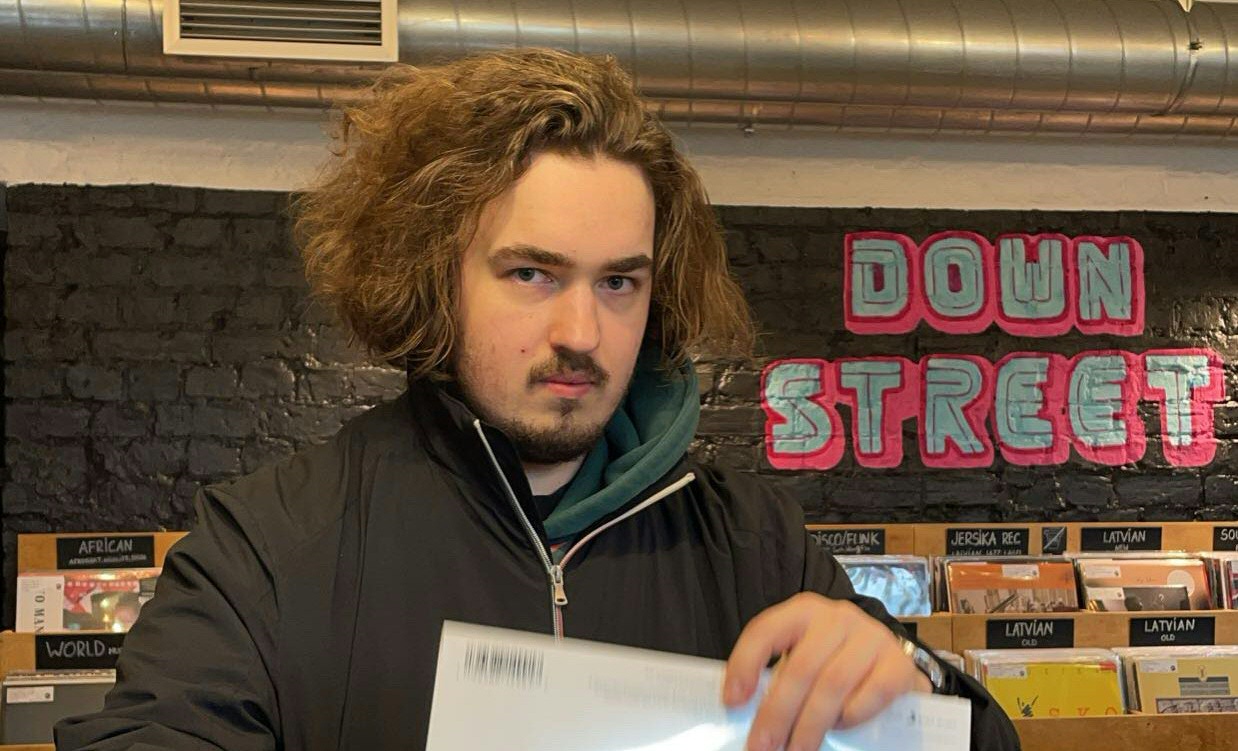
After completing my Bachelor's degree in International Relations in Latvia, I wanted to pursue further studies about the Middle East as a more focused approach to the region would have benefited me more. The search for the right university was difficult, but it led me to start the MA in Middle Eastern Studies in Groningen.